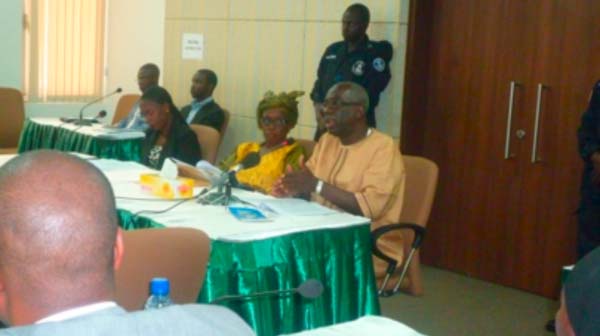
Presenting the report, Abdou W. Mbye, Director General of the GNLSA, said over the past centuries the emergence of new technologies had led people to predict the future or demise of memory of institutions like libraries, museums, and archives.
These predictions could be traced from the time of Plato, the ancient Greek philosopher, who saw the advent of papermaking (then a new technology) as heralding the end of humanity.
The GNLSA director told assembly members that in the 1980s, a British social scientist wrote a newspaper article entitled “The end of Libraries” in which he predicted the demise of libraries, which would be replaced by computers in a paperless society.
The advent of the internet and phenomenal advances in digital technology of the 21st seemed to have revived speculations about current and comprehensive information at home or in the workplace, he added. Why read a physical book when with a simple touch of a button one could access e-books through Amazon.com, Google, my tablet or my kindle reader, he quoted people as saying.
These arguments are indeed very poignant when applied to the outdated library service of the previous centuries, he said.
The modern day library had long departed from being a repository of books alone or the librarian just staying put and waiting for the customer to borrow books, he noted.
“The library is the symbol and centre of our culture a door and window for those who might otherwise have no such windows or doors,” he said. According to Director Mbye, the GNLSA is a semi-autonomous public institution under the Ministry of Basic and Secondary Education.
It was established as an authority in 2009, by an Act of the National Assembly known as The Gambia National Library Service Authority Act, 2009, he stated.
A Board of Directors through its Director General, who is also the Chief Executive Officer, manages the authority.
The board, which serves for a three-year renewable term (for non ex-officio members),has amembership that includes a chairman, a vice chairman, the permanent secretary at the Ministry of Basic and Secondary Education, the director general, and representatives from various sectors of the community.

